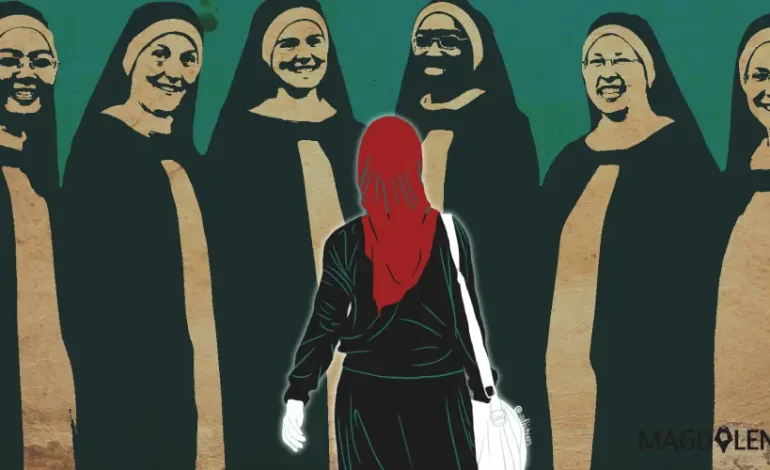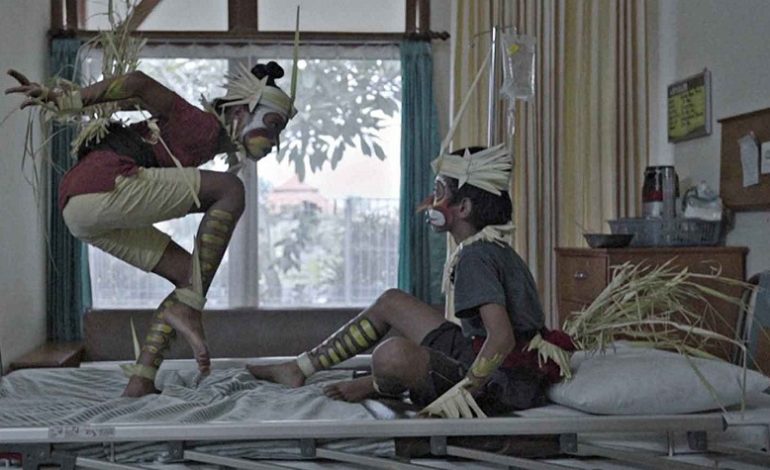Twelve Years a Minority – And Coming Out a More Tolerant Person

I am a Muslim woman who lives in a country with the biggest Muslim population in the world, but I have spent more than half of my lifetime studying in Catholic schools.
After kindergarten, I followed my brother’s footsteps by enrolling in the same private school, Desa Putera, as him. My parents’ decision in choosing a Catholic school was not to expose their children to a diverse environment, at least that’s not the main reason. Rather it was a simple belief that private schools’ quality excels public schools (kindly take this statement with a grain of salt, I do not intend to start a debate).
During my days of being an elementary student, I recalled distinctly one unique event on a particular morning. We were having a flag ceremony after the Eid Al Fitr holiday, and the Muslim students were asked to come forward and stand in the front, where the rest of the school can see us. That gesture was of course not to intimidate us for being a Muslim in a Catholic school. Instead, the goal was to enable the remaining students and faculty members to greet us, one by one, for the holy month of Ramadhan. For us kids, it felt kind of silly and odd, like we were some kind of newlyweds. Eventually, after shaking hands with more than 50 people, one could not help but feel how sticky their palms were – not to mention that such activity can be quite time-consuming.
However, when I reflected on the experience, I realized how the seemingly trivial activity could have such a big impact on me. It is as if my minority status was being celebrated, that we were cherished for having a different religion. Even during those long lines and sweaty hand shake, I couldn’t help but to feel happy.
In junior high, I was neither differentiated nor excluded for my belief. I used to participate in English competitions, since that was probably the only thing I’m good at, and my teacher had such a astrong faith in me, in my skills and determination. I even competed with my fellow classmate, and both of us became very ambitious, giving our best in the competition. Back then, I also joined the students’ organization, or the “Presidium”. The selection process was challenging, but I somehow made it in, and they trusted me to be a treasurer.

Long story short, I was evaluated for my performance, reproached for my bad grades, and praised for my achievements, but never for my religion.
High school was even more memorable. In Kolese Gonzaga, I learned about Catholicism because the school does not offer non-Catholicism class for the subject religion study – indeed a risk and drawback in enrolling in a private non-Muslim school. Even so, what I learned in the religion class were mostly universal values such as ethics, morals, and even abortion. I learned how we should appreciate human life, and how we should be honest and kind to one another.
Once we were even assigned to give a presentation of our own religion, and I stood alone for what felt like forever, explaining to my friends about Islam. When the Q&A session came, I was super nervous, not because my friends might judge me with extreme prejudice, but because my answers might not be satisfying. There were indeed a lot of questions, and I sensed that all of them emerged purely from curiosity, from their effort in trying to understand. Still, at that time, and perhaps even now, I was struggling to have a comprehensive understanding of my own religion.
As you may have guessed, I couldn’t answer some of the questions, and that’s when my teacher stepped in. She was more than capable of answering the questions, even though it’s not even her religion. I was certain that she must have understood it more than I did. You rock, Ibu Endah!
Moreover, during Ramadhan I used to be the only one fasting while my friends went to the cafeteria or ate their lunch in front of our class room. I didn’t complain about it, not in front of my friends not even quietly (I knew it’s a risk that comes with attending a Catholic school). But it turned out that my friends were the ones who felt bad for eating and drinking in front of me. Some of my friends even took the extra mile to hide or cover their food. How considerate!
Technically, they had the right to eat, and I had the right to perform my belief, but that doesn’t mean that mine should violate theirs. Besides, if a person had a strong faith, such trivialities shouldn’t be a problem.
In addition, my best friends were always excited to accompany me to have fast-breaking meal, even though I was the only one fasting. We would discuss where to eat, or what kind of food I would like. Sometimes we ended up in my friends’ house or mine, enjoying the takeaway food with good laughter or a horror movie.
Now that I think about it, around 70 percent of my best friends are either Catholics or Christians, and it never matters. What matters is that we appreciate each other’s belief, by not hanging out on Sunday morning because my friends need to go to the church, by waking up at 4 a.m. during sleepover so that I can eat sahur, the pre-dawn meal before fasting, and so much more.
Having friends of different religions or backgrounds should be normal, but in Indonesia’s current condition, I feel like I shouldn’t take those friendships for granted. So, here’s to all of you, my inter-faith friends from elementary up until high school. Thank you for not letting our differences get in the way of our friendship.
Perhaps being a minority teaches us to be tolerant and open-minded, perhaps being in other people’s shoes results in more understanding and less judging. Perhaps we should all experience being a minority.
Miriam is currently a final year student majoring in English Literature at Universitas Indonesia. Her passion lies in the environmental and animal issues. She enjoys swimming, window shopping, fangirling, and reading during her spare time, as well as when she’s procrastinating (which happens a lot).






















